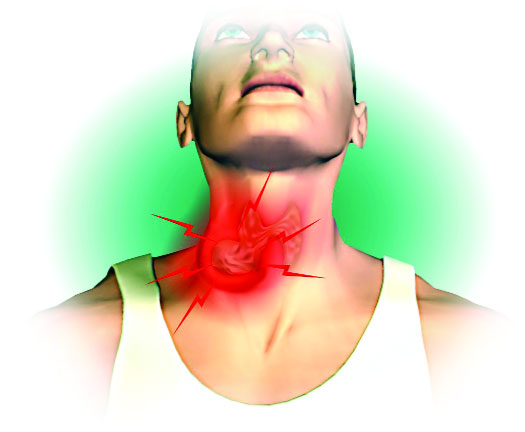Recently, actor-director, Rakesh Roshan has been diagnosed with the early stage of Squamous Cell Carcinoma (SCC) of the throat which is one of the primary types of throat cancer. This type of cancer happens when there is excessive growth of abnormal cells of the lining of the throat. The throat consists of pharynx and Larynx. The pharynx is the part of the throat behind the mouth and the nasal cavity. It is situated above the esophagus and larynx. Larynx is also called the voice box.
Causes
There can be a number of factors contributing to the development of throat cancer. The most common is the strong combination of heavy alcohol consumption and intake of tobacco, particularly in the form of cigarette smoking. Alcohol and tobacco are already two of the most common reasons behind throat cancer and the risk increases when they are consumed simultaneously for a long period of time. Apart from these, poor diet, bad oral hygiene, and even genetics can contribute to throat cancer. It is most commonly diagnosed among those who are over 60 years of age.
Various types of head and neck carcinoma are also associated with certain chronic viral infections such as the Epstein-Barr Virus, Human Papilloma Virus (HPV), Herpes Simplex Virus and Human Immunodeficiency Virus (HIV). Few other risk factors include prolong exposure to radiation or chemicals such as asbestos, nickel, and hydrocarbons.
Symptoms
Look out for change in the voice especially that refuses to resolve in weeks, sore throat for no apparent reason, hoarseness, trouble swallowing, sudden weight loss, anemia, constant uneasiness inside the throat, swollen lymph nodes and ear pain. If such conditions do not improve even after three weeks of conventional treatment, it is advisable to consult an oncologist.
Diagnosis
When diagnosed early, throat cancer has a high survival rate. To help with the diagnosis, cooperate with the doctor by discussing the symptoms, lifestyle choices and medical history. To get a clearer look at the throat, a laryngoscopy could be prescribed to the patient. If any abnormalities are found during this primary test, a more detailed biopsy can be prescribed. There are various types of biopsies that can be suggested to the patient, such as the conventional biopsy, fine needle aspiration (FNA), or an endoscopic biopsy.
Once throat cancer is diagnosed there are various imaging tests that can be undertaken to pin-point the extent of the cancer or most commonly at what stage the cancer is currently residing in. These tests may include, magnetic resonance imaging (MRI), positron emission tomography (PET scan), computed tomography (CT scan), barium swallow and chest X-ray.
Treatment
Once the diagnosis is complete, the patient is given treatment that can include one or a combination of multiple procedures over a certain period of time which is determined by the severity of the throat cancer among other factors. Usually, the early stages of throat cancer can be treated with microlaryngeal surgery (MLS) or by radiotherapy. However, in locally advanced disease, combination of surgery and CT/RT have been proven to be the successful course of treatment for throat cancer.
Recovery
Following the treatment, the patient is kept under close monitoring to look for any relapse of the cancer. Meanwhile, some patients may find themselves experiencing few complications. These include, having problems with speaking, breathing or swallowing, which can be helped through specific therapists, hardening of the skin or disfigurement of the neck or face, in which case reconstructive surgeries can be discussed.
Prevention
To reduce the risk of any type of head and neck cancer, discontinue smoking, stop any other form of tobacco intake, reduce alcohol intake and if possible, gradually keep alcohol completely away, maintain a healthy lifestyle with balanced diet and lookout for HPVs by taking preventing measures.
The writer is Dr Anshuman Kumar Director, Surgical Oncology at Dharamshila Narayana Super speciality Hospital, New Delhi


























